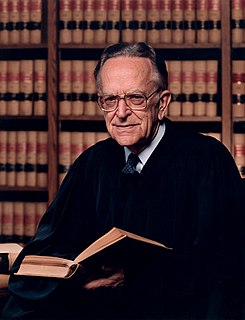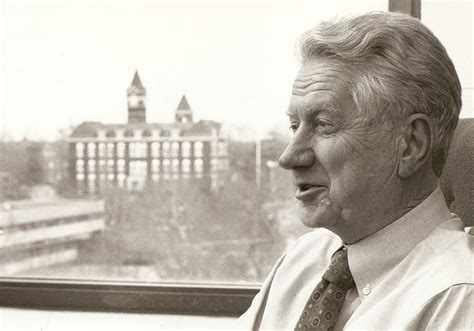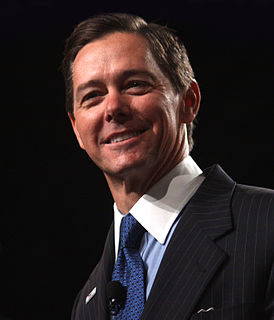A Quote by Harry A. Blackmun
The Free Exercise Clause at the very least was designed to guarantee freedom of conscience by prohibiting any degree of compulsion in matters of belief. It was offended by a burden on one's religion. The Establishment Clause can be understood as designed in part to ensure that the advancement of religion comes only from the voluntary efforts of its proponents and not from support by the state. Religious groups are to prosper or perish on the intrinsic merit and attraction of their beliefs and practices.
Quote Topics
Advancement
Any
Attraction
Belief
Beliefs
Burden
Clause
Compulsion
Conscience
Degree
Designed
Efforts
Ensure
Establishment
Establishment Clause
Exercise
Free
Freedom
Groups
Guarantee
Intrinsic
Least
Matters
Merit
Offended
Only
Part
Perish
Practices
Prosper
Religion
Religious
State
Support
Understood
Very
Voluntary
Related Quotes
The "establishment of religion" clause of the First Amendment means at least this: Neither a state nor the Federal Government can set up a church. Neither can pass laws which aid one religion, aid all religions, or prefer one religion over another. Neither can force nor influence a person to go to or to remain away from church against his will or force him to profess a belief or disbelief in any religion.
The first phrase of the First Amendment spoke to the freedom uppermost in Jefferson's mind when it provided that, 'Congress shall make no law respecting an establishment of religion, or prohibiting the free exercise thereof.' Here a double guarantee could be found: first, that government would do nothing to give official endorsement to a religion or to set one faith above another; second, that government would do nothing to inhibit the freedom of religion.
The door of the Free Exercise Clause stands tightly closed against any government regulation of religious beliefs as such. Government may neither compel affirmation of a repugnant belief, nor penalize or discriminate against individuals or groups because they hold views abhorrent to the authorities.
I believe in absolute freedom of conscience for all men and equality of all churches, all sects and all beliefs before the law as a matter of right and not as a matter of favor. I believe in the absolute separation of church and state and in the strict enforcement of the Constitution that Congress shall make no law respecting an establishment of religion or prohibiting the free exercise thereof I believe that no tribunal of any church has any power to make any decree of any force in the law of the land, other than to establish the status of its own communicants within its own church.
Waiving the rights of conscience, not included in the surrender implied by the social state, & more or less invaded by all Religious establishments, the simple question to be decided, is whether a support of the best & purest religion, the Christian religion itself ought not, so far at least as pecuniary means are involved, to be provided for by the Government, rather than be left to the voluntary provisions of those who profess it.
Believing with you that religion is a matter which lies solely between man and his God, that he owes account to none other for his faith or his worship, that the legislative powers of government reach actions only, and not opinions, I contemplate with sovereign reverence that act of the whole American people which declared that their legislature should 'make no law respecting an establishment of religion, or prohibiting the free exercise thereof,' thus building a wall of separation between church and State.




























